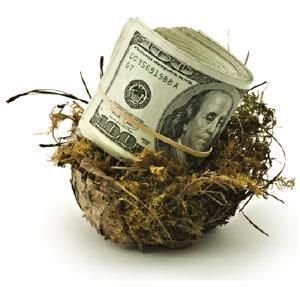Fair Trade Finance: Where Is Your Money?

Bear Stearns. UBS.
Bank of America.
Morgan Stanley.
Merrill Lynch.
What do these names in Wall Street finance have to do with food co-ops? All of these companies-mainstream stalwarts of the American financial system-have in the last year written off billions of dollars in subprime mortgages, and in the case of Bear Stearns, been completely pulled under by the weight of these bad debts.
Banks make subprime mortgage loans to borrowers who do not qualify for the best interest rates, usually because the borrowers have low incomes or poor or nonexistent credit histories. Most subprime mortgages promise a low interest rate for the first few years, then convert to a much higher adjustable rate for the remainder of the term of the mortgage. The initial low rates entice borrowers to commit to loans that they may be unable to pay back and that they later default on. Many call these loans “predatory” for their high fees, high pressure tactics, and the way they take advantage of vulnerable poor people with dreams of home ownership.
Unethical lenders have always been among us, but in the last few years the appetite for such loans has spread to conventional finance entities. The number of subprime loans has exploded recently, and with them the number of foreclosures. Parceled out, packaged and sold, these loans have made their way across the globe, into your neighborhood, and quite possibly into your retirement portfolio.
Being intentional with our finances
A man from a community foundation once told me it was far too risky for him to put money into a co-op loan fund like Northcountry Cooperative Development Fund, which would recycle his dollars by making loans to co-ops in his rural community. His money was only safe in New York with big financial services giants, he said. I wonder what he’s thinking now, as his portfolio sinks under the weight of the risky and predatory loans made by his friends on Wall Street, and as plywood covers the windows of foreclosed homes in the community his foundation serves.
We need to be intentional with our finances if we are to build the world we want, a world different from the one conventional financial markets are giving us.
Food co-op folks have known for decades that in this community we call Earth, the way we treat our neighbors matters. The movement for locally grown and organic food is part of a greater bid to build an economy where just and sustainable relationships-with each other and with the environment-override the objective of profit alone.
In recent years, the Fair Trade movement has expanded on this idea, advancing the proposition that we can extend the values of fairness and justice around the earth. We can allow these values to govern how we deal not only with our neighbors down the road, but with our neighbors across the globe.
The subprime lending crisis has shown that we need an extension of these same fair trade values to the world of finance. We care how our food is grown-let’s also care how our money is invested. We care how the person who picks our vegetables or harvests our coffee is treated. Let’s also care how the person whose home loan you just bought fares.
With conventional financial markets, it is very difficult to “source” your investments the way you can source your food. Cooperative loan funds can help. Funds like Northcountry Cooperative Development Fund (NCDF) and the Cooperative Fund of New England (CNFE) take your money and put it right back into cooperative enterprises in your community and others like it.
Locally based loan funds like ours can tell you every day exactly how your money is working. You can know where your money goes and who benefits. The relationships our cooperatives build are more just and sustainable for our neighbors and for the earth than relationships built by conventional financial entities that view their single obligation to be the pursuit of profit.
Food co-op shoppers can have confidence that the price we pay at the co-op is “fair” in a broad sense of the word, and price isn’t the only variable we consider in buying our dinner. In the same way, return shouldn’t be the only variable we consider when investing our savings.
I have seen food co-op members, who happily pay a premium of 20 percent or more for organic produce, balk at the prospect of getting one quarter of one percent less on their savings by putting it in a locally based cooperative investment vehicle rather than Wall Street. A 100-year vision of a just and sustainable world is incompatible with a narrow fixation on quarterly returns.
The cooperative movement built a different food system. The time is ripe for “fair trade” finance. Let’s show that we care what our money does.
For more information on “investing in cooperation” see www.ncdf.coop. For more information on predatory lending, see the website of the Center for Responsible Lending at: www.responsiblelending.org.
***
Margaret Lund is the former executive director of Northcountry Cooperative Development Fund ([email protected]).







